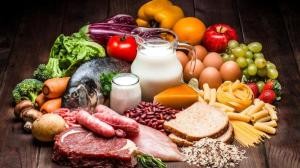Harmful (Spoiled) Foods
09 Oct 2025
Spoiled foods are those contaminated by radioactive, chemical, or microbial pollution, or containing excessive artificial additives and improper packaging that causes oxidation and nutrient degradation.
The spread of spoiled foods has become a serious public health concern due to their harmful effects on consumers’ health. Addressing this issue requires strong governmental inspection and public awareness campaigns.
🧪 How to Identify Spoiled Foods
Through microbiological and chemical analysis, detecting changes in composition, taste, smell, or appearance.
Presence of larvae, worms, insects, or animal droppings inside the food or packaging.
Expired shelf life indicated on the product.
Prepared or stored under unsanitary conditions.
⚠️ Health Risks of Spoiled Foods
Bacterial food poisoning is the most common type of foodborne illness. Its severity varies by bacterial type, individual immunity, and age.
Main symptoms include:
Diarrhea and dehydration – vomiting and nausea – kidney failure – intestinal pain and headache – abdominal bloating – fatigue and loss of appetite.
🛡️ Preventive Measures
Wash hands thoroughly before and after food handling.
Clean hands with soap after handling raw meat, vegetables, or using the restroom.
Choose fresh foods and avoid preserved ones when possible.
Ensure kitchen utensils are properly cleaned before use.
Keep pets away from food areas.
Prevent infected persons from preparing food.
Store perishable foods in the refrigerator and consume them quickly.
Use glass or coated containers to prevent chemical reactions with metals.
Keep food covered and protected from insects and rodents.
Boil milk and cheese before consumption.
Use a water filter or boil water if its safety is uncertain.
Dispose of food waste daily in sealed bags and proper bins.
🥗 How to Choose Safe Food
Avoid products in torn or unsealed packaging.
Always check manufacture and expiration dates.
Do not buy from street vendors lacking hygiene standards.
Avoid punctured, swollen, or rusty cans.
Choose pasteurized dairy products, processed at high temperatures to kill bacteria

